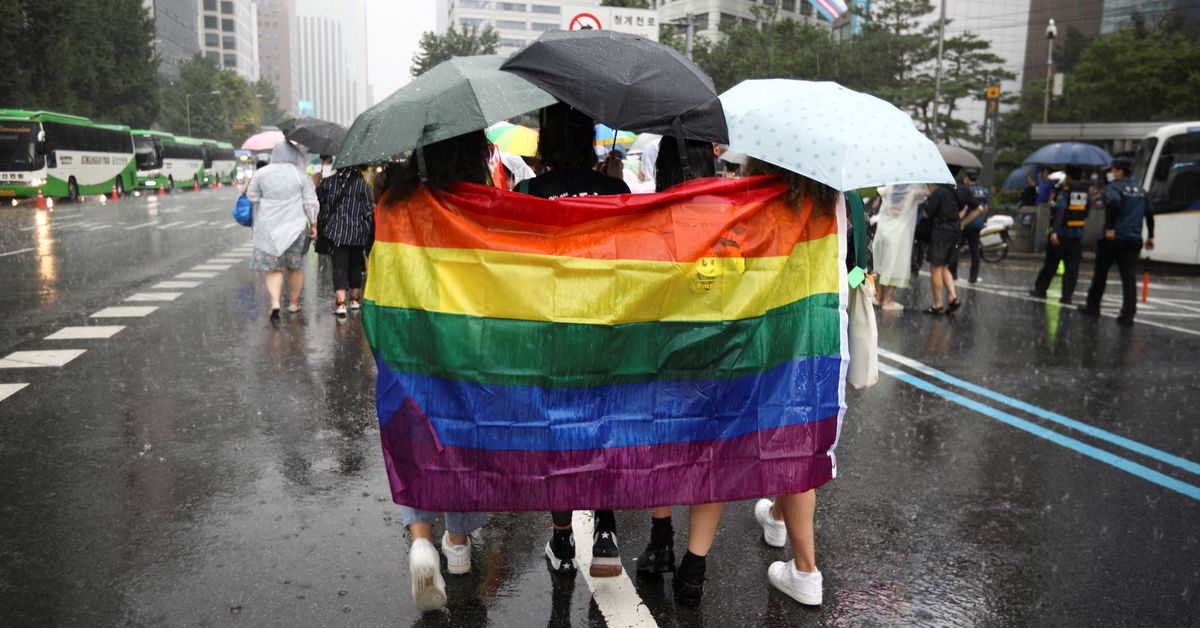South Korea’s constitutional court on Thursday narrowly upheld a law banning same-sex relations within the armed forces, citing a possible risk to the military’s combat readiness in a ruling criticised by activists as a setback for gay rights.
Under the country’s military criminal act, members of the armed forces face up to two years in prison for same-sex relationships. The law has been referred to the court and upheld by it four times since 2002.
In Thursday’s five-to-four ruling, the court said allowing same-sex relations could undermine discipline within the military and harm its combat capabilities.
What an insult to the gay men who are willing to serve the country no matter what
gay men who are
willingforced to serve.Military service is not optional in South Korea.
That’s the thing: most of them are not willingly there. Military service is compulsory for all able-bodied, South Korean men.
Does this mean gay sex between serving members or include while on any sort of leave etc.
Between members makes sense (but should apply to sex in general)
Imagine having to fill out the leave application
Purpose of Leave: gay sexy time
I have no idea if same sex marriage is legal there but would be really weird if you could be in a same sex marriage but while enlisted can’t have sex…
In Thursday’s five-to-four ruling, the court said allowing same-sex relations could undermine discipline within the military and harm its combat capabilities.
Hello, Korean constitutional court? Ever heard of the Sacred Band of Thebes? Being gay only made them stronger
How are relationships in the military (particularly south Korean) usually handled. I read the article but was unable to find out if this ban is specifically for couples within the armed forces or if it also applies to a relationship with someone outside of the armed forces. Is there a difference for heterosexual relationships? I’m unsure of how South Korea recruits for the military (conscription or volunteer) but do they not accept people in certain relationships? I would love to know if anyone has the answers.
deleted by creator
So no blue on blue?
This is the best summary I could come up with:
SEOUL, Oct 26 (Reuters) - South Korea’s constitutional court on Thursday narrowly upheld a law banning same-sex relations within the armed forces, citing a possible risk to the military’s combat readiness in a ruling criticised by activists as a setback for gay rights.
Under the country’s military criminal act, members of the armed forces face up to two years in prison for same-sex relationships.
In Thursday’s five-to-four ruling, the court said allowing same-sex relations could undermine discipline within the military and harm its combat capabilities.
Activists said the law fuels violence and discrimination against and stigmatization of gay soldiers.
“This continued endorsement for the criminalization of consensual same-sex acts within the Korean military is a distressing setback in the decades-long struggle for equality in the country,” Boram Jang, Amnesty International’s East Asia researcher, said in a statement after Thursday’s ruling.
South Korea has one of the world’s largest active armies, with all able-bodied men between the ages of 18 and 28 required to serve between 18 and 21 months.
The original article contains 226 words, the summary contains 169 words. Saved 25%. I’m a bot and I’m open source!
This claim is especially dumb and nonsensical if opposite-sex relationships are still allowed, since those impact combat readiness way more. Especially when they are relationships where one partner is in a higher position of power.
Fuck south korea
Might be next to be outlawed
Not on active duty!








